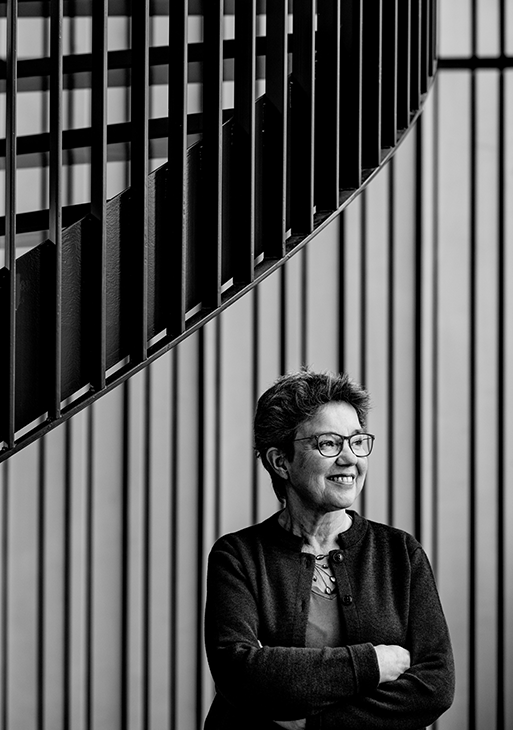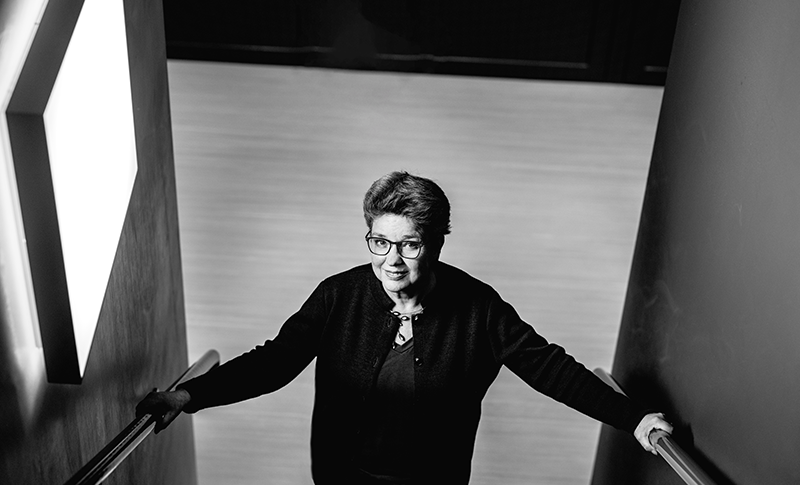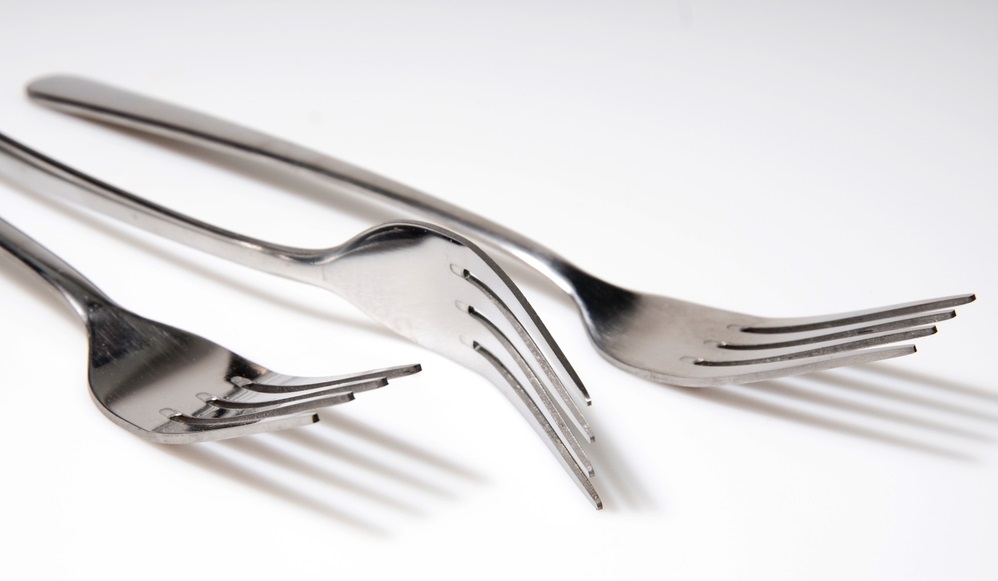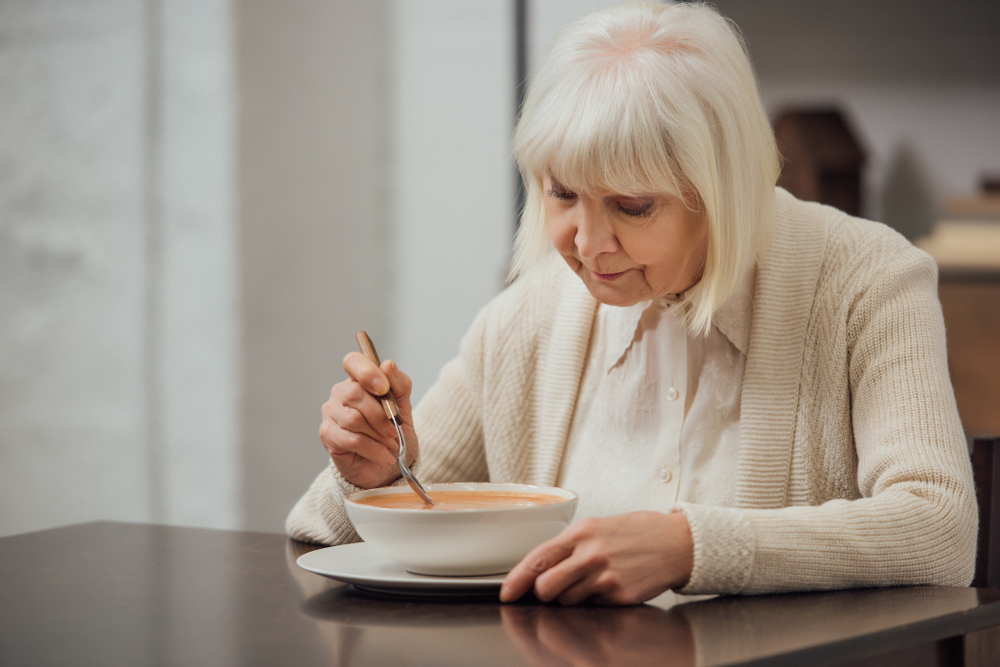Professor of Nutrition & Disease Ellen Kampman has been investigating the role of lifestyle and diet in cancer for 35 years. The results are now starting to come in from a large cohort study she set up 15 years ago. ‘My sister-in-law got cancer and asked me what I could advise people who already had cancer. There was no answer to that then, and that set me thinking.’
‘In mid-February, we published the latest findings from the COLON cohort study showing that coffee has a favourable effect on survival after bowel cancer. The media come to me then. The PhD candidate who did this project doesn’t speak Dutch and therefore couldn’t talk to the press, so I’m the one who ends up in the news. Otherwise I would have let her handle it. I find that appropriate now I am nearing the end of my career.
‘I still have five years to go before my retirement, but I am already taking a step back. My name is no longer on project proposals unless I wrote them myself. And I’m usually no longer the last, most senior author in papers; sometimes I’m not listed as an author at all. Too often, I see people who want to hold onto their research. I understand why, but I think we should make way for younger researchers. Gradually winding down is a choice I made rationally, but it feels right to me emotionally.
I think we should make way for younger researchers
‘I got a statuette, a mentor award, from Fränzel van Duijnhoven, Dieuwertje Kok and Renate Winkels, three women in the Nutrition and Disease chair group, each of whom has developed their own line of research, in part using the COLON cohort. The figurine shows a woman holding up three other women. They found that a good representation of our relationship. Although I don’t see it quite that simply: they hold me up too. I should try and find a figurine with the reverse image.
‘Meanwhile, I can start looking forward to the things I’ll do when I’m retired. I love plants so I will be doing a lot of gardening, for example in the garden of Toon Hermans Huis in Ede. I helped start this special garden for cancer patients and I like going there.’
Bad luck
‘I actually came to Wageningen to study Plant Breeding but it turned out different to what I expected — it wasn’t about growing plants in a greenhouse. A flatmate was studying Nutrition and Health and she had really fun practicals. By Christmas, I had switched degree subject. The professor who supervised my final internship sent me to Greece to do research on gastric cancer. I fell in love with this topic immediately. I have been studying cancer now for some 35 years.
‘Back then, researchers thought it was pure bad luck if you got the disease, or perhaps something genetic. According to them, it had nothing to do with lifestyle. I didn’t believe that one little bit. I spent the first 25 years of my career mainly doing research on the lifestyle of healthy people, with the aim of preventing cancer. Lifestyle has most effect on bowel cancer, so we decided to study that variant. I think we now largely know how lifestyle affects the risk of healthy people getting bowel cancer. Recommendations to reduce the risk of cancer have been drawn up based on all the research in the Netherlands and elsewhere, including our own research.
Researchers thought back then that you got cancer due to bad luck or something genetic
‘But people who already had cancer were also increasingly asking what they could do — before, during and after treatment — to improve their chances of survival. Around that time, my sister-in-law got breast cancer. She asked me straight up, “Ellen, what can you tell people in my situation?” I had no answer to that, as there wasn’t much known scientifically that could be of use to this group — people who were already patients. That set me thinking. It was why I started looking into the role of lifestyle in cancer patients; we have been doing that for 15 years now.’
Millions
‘Around 2010, a couple of developments coincided. I became a professor at WUR and the World Cancer Research Fund wanted to collaborate with us on a new study on lifestyle in connection with cancer treatments. We used the money the Fund gave us to start up the COLON study for lifestyle research in bowel cancer patients. You need an awful lot of money for cohort studies — studies where you follow a group of people with a particular disease over decades. That cohort has cost a few million by now.
Our cohort has data on about 2100 people with bowel cancer
‘Since 2010, we have been collecting lifestyle data on bowel cancer patients for this study. Our data collection starts soon after the patients get their diagnosis. We ask them, via the doctor treating them, whether they want to join our observational study. We get them to fill in questionnaires on their lifestyle habits, we take blood samples and we ask them to collect faeces samples. We repeat this after six months and one, two and five years. With their consent, we link the data to the cancer registry, among other things. Then we know whether our participants get cancer again or die.’
Long haul
‘We stopped taking on new participants a couple of years ago. Our cohort now has data on about 2100 people with bowel cancer, from 11 hospitals. We will continue to follow those people to see how they do. We have been following some of them for nearly 15 years now and the cohort is starting to bear fruit.
‘You are in it for the long haul with research like this. Survival rates with bowel cancer are — fortunately — quite high so patients can stay in the study for a long time. What is more, you can’t assess the influence of lifestyle on someone’s health with just one measurement. But the study has already been very fruitful: 10 researchers got their PhDs working on it and a lot of postdocs have used the data. We have published at least 60 papers on the study.
‘A cohort like this keeps going for years and it’s a shame if you use it to only answer one research question. That is why we ask the patients so many questions: from what vitamins and supplements they use to physical exercise, smoking and sleeping. Looking back, I would like to have measured stress levels too, but we didn’t have good methods for that at the time. In fact, they are still in development. Patients are curious about the link between stress and cancer.’

Coffee
‘So patients and their healthcare providers steer our research to some extent. When they ask questions, that can prompt us to write new project proposals. Coffee was one such question. Patients face so many restrictions that they were hoping they could still drink coffee.
‘We store the samples from our study in the freezer and the data on a hard drive. If we have new research questions, we retrieve the data we need and analyse it. We can also relate that data to other cohorts in the Netherlands and abroad. That is because they use the same questionnaires so we can compare our data or merge it with theirs.
‘Sometimes we have a research question that is specific to a small group of people, for example for patients with rectal cancer. This group has a different chance of survival and different symptoms to patients who get cancer at the other end of their intestines, and they get a different kind of treatment. If we can merge data from various cohorts on these patients, we have more information to go on and we can find new associations.’
Chicken or egg
‘The disadvantage of observational research is the chicken or egg dilemma: you can never be sure about causality. In our analyses, we correct for factors that are interrelated. For example, vegans are often very health-conscious. Are they healthier despite their vegan diet or because of it?
The Netherlands has 17 million nutritional scientists
‘So we need to think hard in advance about how all the health factors are interlinked before we do any analyses. And we have to compare our results with other studies that looked at the same things. Sometimes experimental studies are carried out with human subjects, but you can’t use that approach for everything. For example, it is unethical to force alcohol down people and see what that does to their health. Or to wait until people get cancer without treating them and then decide afterwards what the culprits were.’
Proper Wageningen?
‘People sometimes ask me whether what we do here is proper Wageningen research. WUR seems essentially to still be an agricultural university; I rarely read much about human nutrition and health in the strategic plan, for instance.
‘And yet the Human Nutrition and Health department has existed for over 50 years. We have been studying the relationship between nutrition and disease for half a century. What is more, virtually everyone who has anything to say scientifically on nutrition in the Netherlands did the Bachelor’s and Master’s in Nutrition and Health at Wageningen. That says something about the quality of our work and degree programme. The nice thing about Wageningen in my opinion is that in addition to health, we also take sustainability into account in our research. What is more, we have access to expertise on such topics as food chemistry, biology, cell biology and human and animal physiology.
The culture at WUR has become less male-dominated over the past 40 years
‘WUR has changed over the past 40 years. It has become more diverse, with less of a male-dominated culture. It is good that we have a woman on the Executive Board and that the new rector will be a woman. It’s good for women to be seen to be occupying senior management positions. I find diversity increasing in more and more places, and I’m delighted with that.’
17 million nutritional scientists
‘The Netherlands has 17 million nutritional scientists. But we are different because we can justify our statements with sound scientific evidence. Sometimes, especially on social media, claims are made where I think: how on earth did they come up with that? Recently, someone wanted to know whether green bananas in particular protect against cancer. I can laugh about that one, but when people give advice that can be harmful, I always intervene. For example, if they say alcohol or a diet with a lot of meat is good for you, I speak out. I won’t allow nonsense.’
CV Prof. Ellen Kampman
1981-1988 Degree in Nutrition and Health, Wageningen
1989-1994 PhD candidate at Maastricht University
1991 Visiting research fellow at the Harvard School of Public Health, Boston, (Massachusetts), USA
1994-1996 Postdoc at the Fred Hutchinson Cancer Research Centre, Seattle, (Washington), USA
1996 – present Wageningen University & Research
2008 Appointed personal professor of Nutrition and Cancer
2015 Appointed to the chair of Nutrition and Disease
Ellen Kampman is a member of various Dutch and international committees, including the supervisory board of the Netherlands Nutrition Centre and the Public Health consultation group of the Health Council of the Netherlands.

 ‘The study has already been very fruitful: 10 researchers got their PhDs working on it and a lot of postdocs have used the data. And we have published at least 60 papers on this study.’ Photo Duncan de Fey
‘The study has already been very fruitful: 10 researchers got their PhDs working on it and a lot of postdocs have used the data. And we have published at least 60 papers on this study.’ Photo Duncan de Fey 

